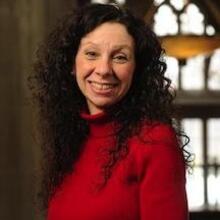‘There is no way of telling people that they are all walking around shining like the sun.” These famous words of Thomas Merton convey the vision he experienced standing on a street corner in Louisville, Ky., on March 18, 1958. It was 10 years and nine months before his untimely death, but Merton had no way of knowing that—and even if he had been aware, through some preternatural vision, of the precise extent of his finitude, it would likely have increased his wonder and delight in the vision of infinitude he was receiving.
Jan. 31, 2015, marked the 100th anniversary of Thomas Merton’s birth, and he is everywhere, his centenary celebrated in journal articles, at conferences and in new books and essays. Given Merton’s centrality to American Catholic life and literature from the moment his conversion memoir, TheSeven Storey Mountain, became an unlikely runaway bestseller to the moment of his accidental death by electrocution at an ecumenical conference of Christian and Buddhist monks in Thailand on Dec. 10, 1968 (the 27th anniversary of his entry into Gethsemane Abbey), it is fitting, if ironic, that he be feted: fitting because Merton’s work is still alive, five decades after his death; ironic because Merton entered a Trappist monastery, renouncing the world and his youthful pretensions to becoming a famous writer, in order to disappear.
But disappear he could not, no matter how hard he tried. His voice proved to be one we needed (if not one we heeded). In his 60-odd books, Merton addressed matters both spiritual and social, bringing the eternal and the temporal into alignment with one another. He wrote beautiful meditations on contemplative prayer as well as fierce critiques of America’s racism, its warmongering and the secular world’s love affair with the atomic bomb. Speaking from the margins of society, unimpeded by political and personal passions that blinded many during the fractious 1960s, Merton could see what others could not. The clarity of his voice emerged from the clarity of his vision.
“Always be a poet, even in prose.” These words of a very different writer, Charles Baudelaire, aptly describe the source and power of Thomas Merton’s singular voice. Baudelaire refers to the craftsmanship demanded by poetry—its exactitude of language, the brevity and density that empowers poetry to “say the unsayable” (in the words of the poet Donald Hall). But they also describe a way of being in the world, of encountering reality—one must be a poet in order to write like one.
By disposition, orientation and practice, Merton was a poet, and a prolific one at that—he began writing as a schoolboy, won a poetry prize at Columbia University, published his work in elite and mainstream journals and collected his poems in 11 volumes published in his lifetime. Since the appearance of his first collection, Thirty Poems (1944), Merton’s poetry has been continuously in print. Given all this, it is unfortunate that Merton’s identity as a poet is barely acknowledged in the recent tributes to him and seems a fact of his life that threatens to be lost. A learned colleague confided to me recently, “I didn’t even know Merton wrote poems.”
This oversight is due largely to our culture’s lack of regard for poetry. Reversing the ancient literary hierarchy, which placed poetry near the top of the ladder, we moderns condescend to poetry. At best, it is a harmless genre, suitable for children; at worst, it is an intellectual embarrassment.
But not for Thomas Merton, whose acquisition of self-knowledge was predicated upon the power of poetry. He discovered his humanity in Shakespeare, his penchant for the visionary in Blake and his understanding of the soul’s pilgrimage in Dante—so much so that he named his memoir in homage to his poetic master’s progress through the Purgatorio.
Merton believed, along with Emerson, that “poets are liberating gods,” that the practice of poetry releases them (and us) from the claims of daily-ness and the ordinary, permitting us all a glimpse of eternity.
To the poet, Merton wrote, “the whole world and all the incidents of life tend to be sacraments—signs of God, signs of his love working in the world.” The poetry that results is gospel. Standing on the corner of Fourth and Walnut Streets, Thomas Merton receives this sacramental vision, suddenly sees his fellow human beings “shining like the Son” and tells us the good news.








